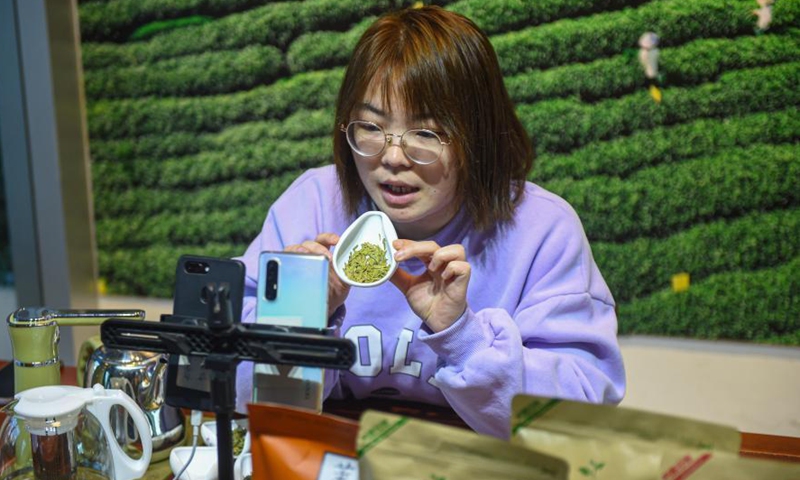
Ye Yuzhu introduces tea to the audience via livestreaming at the tea market in Songyang County of Lishui City, east China's Zhejiang Province, Feb. 25, 2021. The tea market in Songyang County, as a major market of green tea in China, sees the daily tea trade value of about 20 million yuan (3.1 million U.S. dollars).Photo:Xinhua
China will formulate a responsibility list of online trading platforms in order to better regulate the online market.
The State Administration for Marketing Regulation (SAMR) will formulate a responsibility list this year, and accelerate construction of a national online trading supervision platform, the Xinhua News Agency reported on Monday.
The regulator said consumer complaints have been surging while livestreaming has become a new breakthrough for e-commerce platforms to boost their sales.
The 12315 platform, a hot line telephone number in China helps consumers with problems with products or services, has received a total of 25,500 complaints specifically linked to livestream sales in 2020, a year-on-year increase of 357.74 percent, according to the official data from SAMR.
The lack of proper necessary product quality supervision, poor after-sales service, and inappropriate use of "extreme words" and puffery to guide consumers make impulsive consumption are the main causes of consumer complaints. SAMR has helped consumers recover total economic losses of 8.36 million yuan ($1.28 million) from complaints related to livestream sales in 2020.
Livestreaming has become the most popular sales channel in China and is expected to reach 2 trillion yuan ($307.51 billion) in 2021, according to a report from KPMG. However, rising concerns of fake products sold during livestream sales also became a hot issue.
Given China's robust economic recovery in 2020, the rapidly growing demand for online retail also resulted in an increase amount of complaints from online grocery delivery and food delivery, as major problems such as poor quality food or delayed delivery has become an increasingly mainstream concern.
Global Times



